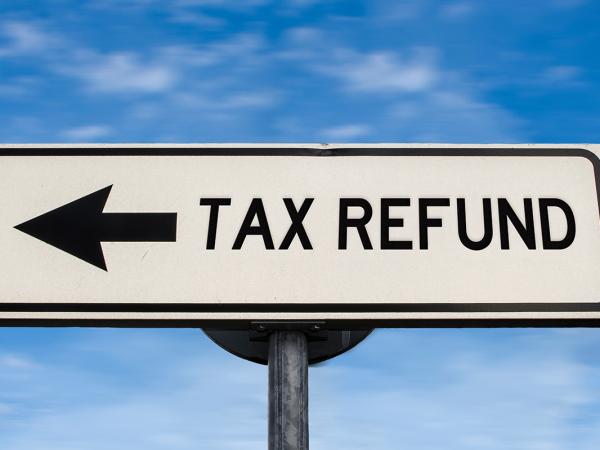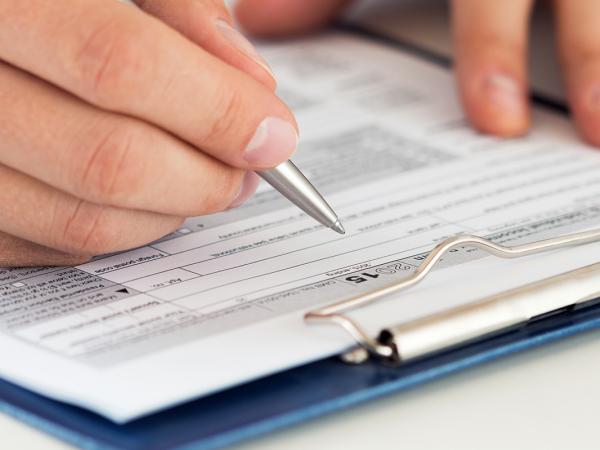PPI tax refunds
Tax may have been deducted at source from the interest element of a payment protection insurance (PPI) pay-out. If the tax deduction means that you overpaid tax in the tax year in which you received the PPI pay-out, you can claim a repayment as set out below.

Content on this page:
Overview
PPI pay-outs are made up of:
- the compensation (which is the refund of the PPI premiums paid and the interest you have paid on those premiums), and
- the statutory interest on the compensation, at 8% (paid in recognition that you were deprived of your money for some time).
It is only the second element, the statutory interest, which is taxable (in the tax year that you receive it). Your circumstances in the tax year(s) in which you paid the original premiums are not relevant.
Although the statutory interest element is treated for tax purposes as savings income, it is not paid gross like bank interest. Most of the time, basic rate tax is deducted at source on the interest element of a PPI pay-out before it is paid to you. The tax is then passed to HMRC on your behalf.
But you may not ultimately be liable to pay tax on the PPI interest element, for example, if when combined with your other savings income for the year, the total is within your Personal Savings Allowance, or if your total taxable income for the year is within your tax-free personal allowance – £12,570 in 2024/25. If this is the case, it is possible to claim back the tax which has been deducted at source.
Claiming a refund
You can make a claim for a tax repayment on your PPI interest using form R40 (or form R43if you are living overseas). You can either do this online, or by downloading and printing off a paper form to send by post. You can access the form R40 on GOV.UK, together with instructions about how to complete the form. For other options of getting hold of a form, see our page Tax refunds on savings income.
In completing the form R40, you should input the net interest in box 3.1 ‘Net interest paid by banks, buildings societies etc, purchased life annuities and PPI payments – after tax taken off’. You should then input the tax deducted in box 3.2 and the gross amount in box 3.3.
You may have had other fees deducted from the pay-out, so you should ensure that the amount you are attempting to reclaim is just the tax element.
You also need to include on the form any other taxable income that you received in the tax year – including the state pension.
There is guidance on how to complete form R40 including an example on our page Form R40: repayment of tax on savings and investments.
Information required
To claim back tax on the interest element of your PPI payouts, you need to know:
- the net amount of interest you received,
- the tax deducted and
- the gross amount of the interest you received.
If you have lost the letters that accompanied the PPI payouts, then you will not know how much of the payout was made up by interest, as compared to the actual compensation itself. It is not really possible to work this out without the breakdown of the payment.
If the bank or other financial institution won’t help you informally, then you could try making a formal Subject Access Request (SAR) request to get the information that you need (as this is personal data that the bank holds about you).
Please note that HMRC now require documentary evidence to support a tax refund claim in respect of PPI. There is more information on GOV.UK.
Using an agent
Some people use PPI claims management companies to help get their PPI payouts. You should be aware that sometimes these PPI claims management companies work in partnership with tax refund companies and may pass your details over to them. They may then contact you about a PPI tax refund or other refunds.
In some instances we have heard of, it seems that agreeing to terms or conditions and/or providing an electronic signature to the PPI claims management company is taken as meaning that you consent to the tax refund company also working on your behalf.
Take extra care with what you are signing up for – particularly when entering your details online or providing a signature. Before signing up to any services, you should read our guidance on Tax refund companies.
More information
Details of the time limits for claiming tax refunds are on our page Tax refunds.
For more information on getting hold of and completing a form R40, see our page Tax refunds on savings income.
There is a guide on how to complete form R40 to claim a PPI refund, including an annotated version, on our page Form R40: repayment of tax on savings and investments.



